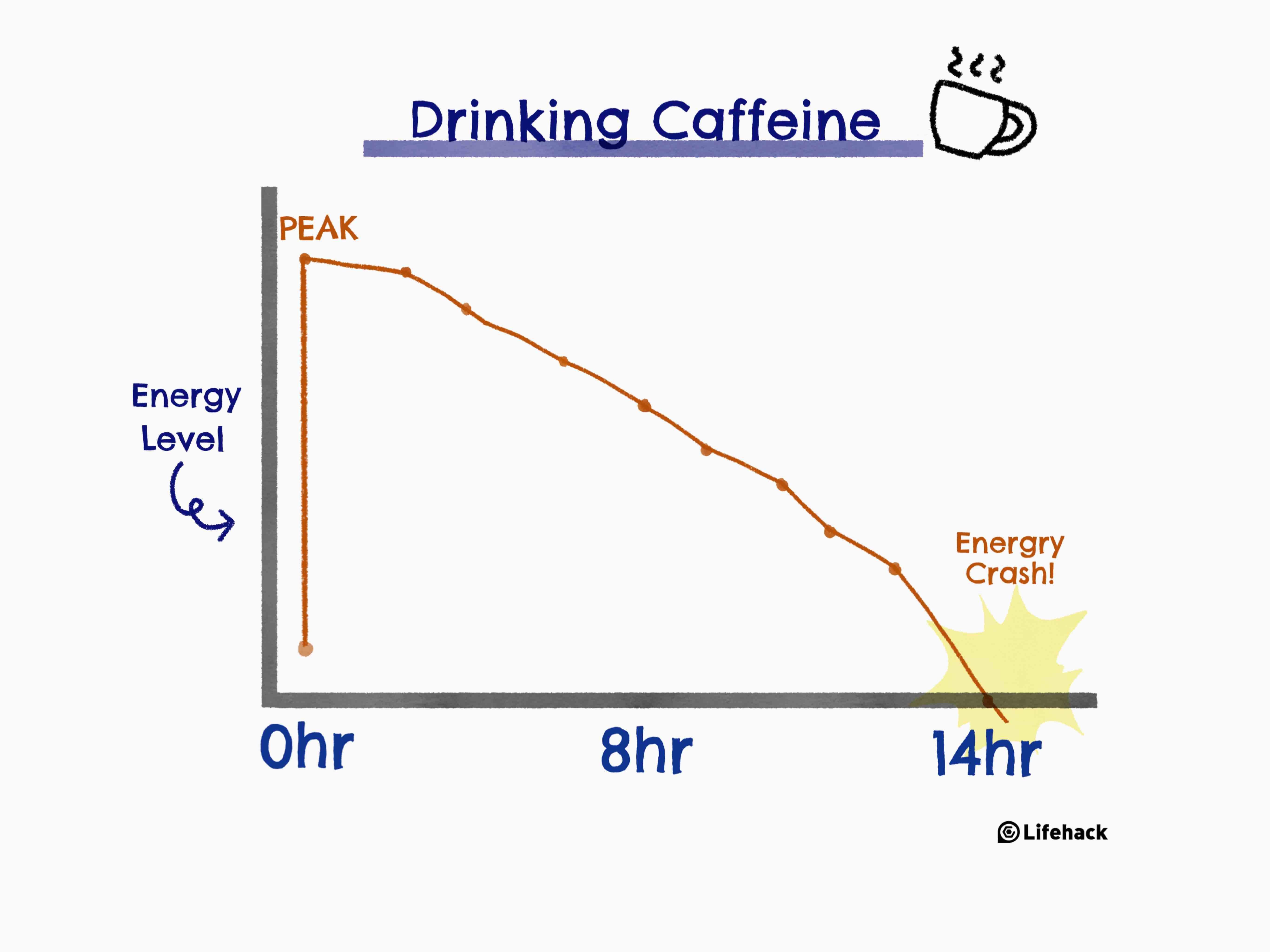
It takes children and elderly people much longer. In humans the half-life for caffeine is anywhere from 4 to 6 hours on average which explains why the average energy drink or coffees effects last about 4 to 6 hours.
Caffeine has a half-life of about 5 hours.
How long to metabolize caffeine. How long does it take to metabolize caffeine. Caffeine may have a greater effect on people who are sensitive to it. Caffeine has a half-life of about 5 hours.
All in all it takes a little over 24 hours for the average person to metabolize and expel the caffeine from one small cup of coffee from your body. However this can change based on the individual. Those that are more sensitive or of advanced age could see these times double.
Caffeine has a half-life of approximately four hours although this timescale may be reduced or extended in certain groups of individuals such as pregnant women those who smoke and people with impaired liver function 1617. Caffeines effects will last for several hours depending on how quickly or slowly it is metabolised by the body 7. In humans the half-life for caffeine is anywhere from 4 to 6 hours on average which explains why the average energy drink or coffees effects last about 4 to 6 hours.
Things like age medical conditions and drug interactions can have an effect on the rate at which caffeine is metabolized. Caffeine is absorbed by the membranes of your body incredibly quickly. Once you take in caffeine youll feel its full effects within 15-45 minutes.
After that your liver will start breaking down the caffeine into caffeine metabolites which you will eventually excrete in urine. In the average adult the half-life of caffeine is about 5-6 hours. In humans the half-life for caffeine is anywhere from 4 to 6 hours on average which explains why the average energy drink or coffees effects last about 4 to 6 hours.
Things like age medical conditions and drug interactions can have an effect on the rate at which caffeine is metabolized. It takes children and elderly people much longer. People who are tall and heavy can metabolize caffeine much more quickly than shorter and lighter people.
Women that take oral contraceptives will metabolize caffeine at an average rate of 3 hours slower than those who dont. So if youve consumed 10 milligrams mg of caffeine after 5 hours youll still have 5 mg of caffeine in your body. The effects from caffeine reach peak levels within 30 to 60 minutes of.
No longer thanks to rapid advances in genetics. The metabolism of caffeine in our body. Children metabolize caffeine quicker than adults.
Since children have faster metabolism they also process the caffeine faster while older people with slower metabolism become somewhat thin-skinned to caffeine and store it for a while. In the feces 27 of the caffeine dose is excreted over 48 hours. A large part of this excretion was found to be mainly caffeine metabolites secreted after liver-intestine cycling and metabolism Arnaud 1976.
But how long does it take to metabolize caffeine. Scientifically caffeine has a half-life of about 5 hours. If you consume 40 mg of caffeine you will have 20mg remaining in your system after 5 hours.
Caffeines peak in blood will take within 15-45 minutes of consumption. Caffeine kicks in around half an hour after you drink a cup of coffee and it lasts many hours after that. After about five hours your body has metabolized half of the caffeine.
The caffeine sticks around in increasingly smaller amounts for many hours. Caffeine has a half-life of four to five hours. This is the amount of time it takes for your liver to flush out half of the caffeine thats in your body.
Certain factors can affect the time it takes though. What determines caffeine metabolism. How Long Does it Take to Metabolize Caffeine.
Caffeine In Coffee Can Take Awhile to Metabolize No matter who you are or what youve eaten all caffeine has a half-life of roughly five hours. Consume 40 milligrams and youll have 20 milligrams remaining in your system after five hours. People with caffeine sensitivity experience an intense adrenaline rush when they consume it.
They may feel as if theyve had five or six cups of espresso after drinking only a few sips of regular. Caffeine is used in. Bronchopulmonary dysplasia in premature infants for both prevention and treatment.
It may improve weight gain during therapy and reduce the incidence of cerebral palsy as well as reduce language and cognitive delay. On the other hand subtle long-term side effects are possible. How long does it take to metabolize caffeine.
Caffeine may have a greater effect on people who are sensitive to it. Caffeine has a half-life of about 5 hours. Someone who consumes 40 milligrams mg of caffeine will have 20 mg remaining in their system after 5 hours.
When do effects peak.
